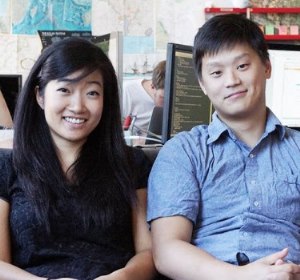Crowdfunding scientific discoveries
 How does natural gas fracking contribute to air pollution? Which features of the urban landscape affect the abundance of bees and the consequent crop yield? Is it possible to prevent the transmission of the BRCA gene mutation? Until recently, scientists’ best hope of finding the answers to these questions was to apply for research grants—a time-consuming and often fruitless process. (The National Science Foundation only funds a quarter of the 40,000 grant proposals it receives each year.) Experiment, a crowdfunding platform for scientific research, is changing that.
How does natural gas fracking contribute to air pollution? Which features of the urban landscape affect the abundance of bees and the consequent crop yield? Is it possible to prevent the transmission of the BRCA gene mutation? Until recently, scientists’ best hope of finding the answers to these questions was to apply for research grants—a time-consuming and often fruitless process. (The National Science Foundation only funds a quarter of the 40,000 grant proposals it receives each year.) Experiment, a crowdfunding platform for scientific research, is changing that.
Experiment (formerly Microryza) was co-founded by UW alumni Cindy Wu (BS, Biology, 2011), Denny Luan (BS, Biochemistry; BA, Economics, 2011), and Skander Mzali (MS, Aerospace Engineering, 2010). The three created the company in response to what Wu calls a “bottleneck” in science research funding—the majority of scientists spend more time on finding funding for research than the actual research itself. Its business model is simple. Similar to Kickstarter, researchers post projects in need of funding on Experiment’s platform and supporters donate to those projects. If a project doesn’t reach its fundraising goal, it goes unfunded, and the donors are not charged. If a project reaches its goal, scientists carry out their research, and share the results with their financial backers. As the website states, it’s “science for the people, by the people.”
Experiment was slow to gain traction. “Sometimes the best ideas look like really bad ideas,” says Wu. The team applied to the UW Business Plan Competition, but didn’t make it past the first round. They applied to Techstars with no success. They applied to 500 Startups and, while the accelerator said their idea was promising, it didn’t accept them. But they kept trying, improving their pitch with each application. “The application process taught us how to explain our start-up in a way that people could understand,” Wu explains.
That was key. In 2011 Experiment was accepted into the Buerk Center’s Jones + Foster Accelerator. Shortly thereafter they applied to Silicon Valley-based Y Combinator, one of the top accelerator programs in the country, and got in. The team hopped in a car, headed south to Palo Alto, and they’ve been full speed ahead ever since.
To date, Experiment has raised $1.23 million in funding from a number of Bay Area standouts like Y Combinator, 500 Startups, and Andreessen Horowitz, and grown to 6 employees. It has been featured in the Seattle Times, the Washington Times, and Nature, and its funding platform has made it possible for scientists to research everything from malaria, to addiction, to pet therapy. Since its April 2012 launch, the company has helped fund over 80 research projects at 50+ universities.
“The number of donations and repeat donors on the application are growing,” says Wu. “When people start to donate more money and the same people come back to donate time and time again, you know you have a real community and an exceptional product.”
Exceptional crowdfunding is only the tip of the iceberg. Experiment’s next challenge is helping scientists collaborate on projects, publish their research, and commercialize their discoveries.
If it sounds like Wu is in for a lifetime of work, she is. “I basically work 24 hours a day,” she says. Luckily, she doesn’t seem to mind. She and her team are dedicated to leading change in scientific research, and if things keep going their way, Experiment might just be the difference between a project that goes unfunded and research that changes the world.
